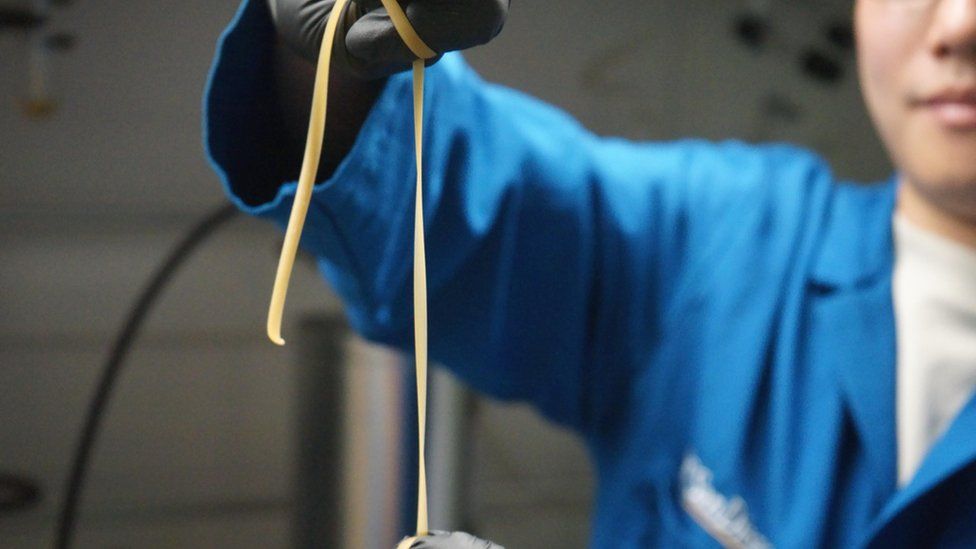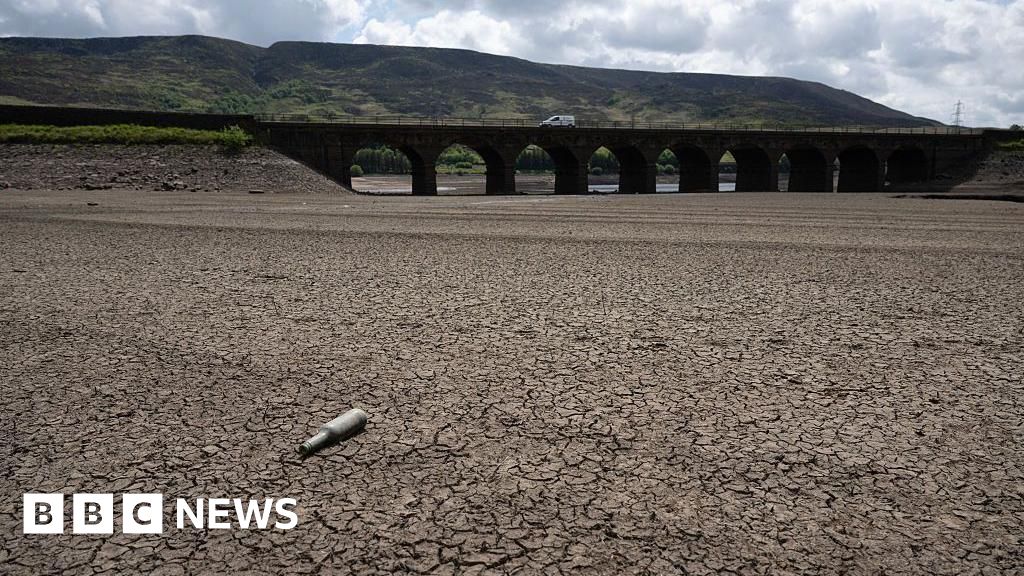ARTICLE AD BOX
 Image source, Han Sol Kim
Image source, Han Sol Kim
By Helen Briggs
Environment correspondent
Scientists have developed a "self-digesting plastic", which, they say, could help reduce pollution.
Polyurethane is used in everything from phone cases to trainers, but is tricky to recycle and mainly ends up in landfill.
However, researchers have come up with a sci-fi like solution.
By incorporating spores of plastic-eating bacteria they've developed a plastic that can self-destruct.
The spores remain dormant during the useful lifetime of the plastic, but spring back to life and start to digest the product when exposed to nutrients in compost.
There's hope "we can mitigate plastic pollution in nature", said researcher Han Sol Kim, of the University of California San Diego, La Jolla.
Image source, Getty Images
Image caption,Products made from polyurethane
And there might be an added advantage in that the spores increase the toughness of the plastic.
"Our process makes the materials more rugged, so it extends its useful lifetime," said co-researcher, Jon Pokorski. "And then, when it's done, we're able to eliminate it from the environment, regardless of how it's disposed."
The plastic is currently being worked on at the laboratory bench but could be in the real world within a few years, with the help of a manufacturer, he added.
The type of bacteria added to the plastic is Bacillus subtilis, widely used as a food additive and a probiotic.
Crucially, the bacteria has to be genetically engineered to be able to withstand the very high temperatures needed to make plastic.
Image source, Han Sol Kim
Image caption,Polyurethane pellets (left) and spore powders (right) are melted together at high temperatures
But not everyone is convinced by the idea of developing biodegradable alternatives to conventional plastics. Some scientists argue it is far better to reduce the amount of plastic used in the first place.
The penultimate round of UN talks for a future plastics treaty have just drawn to a close in Canada, aimed at agreeing a global deal on tackling plastic pollution.
Prof Steve Fletcher, director of the Revolution Plastics Institute at the University of Portsmouth, said the most effective way of tackling plastic pollution was to agree on global legally binding cuts in plastic production.
He told BBC News: "Care must be taken with potential solutions of this sort, which could give the impression that we should worry less about plastic pollution because any plastic leaking into the environment will quickly, and ideally safely, degrade. Yet, for the vast majority of plastics, this is not the case."
The research is published in the journal, Nature Communications.
Follow Helen on Twitter @hbriggs.

 1 year ago
52
1 year ago
52








 English (US) ·
English (US) ·